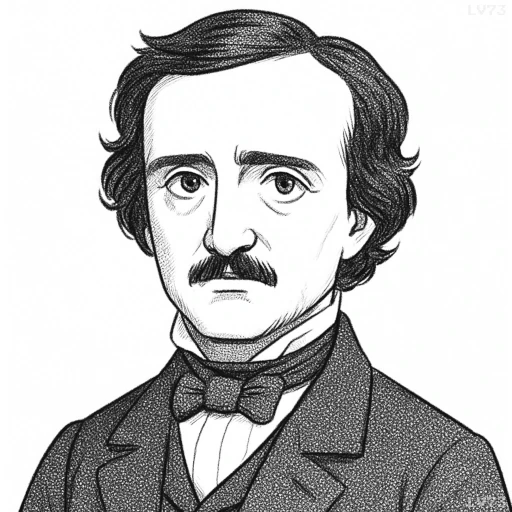“Words have no power to impress the mind without the exquisite horror of their reality.”

- January 19, 1809 – October 7, 1849
- American
- Novelist, poet, critic
table of contents
Quote
“Words have no power to impress the mind without the exquisite horror of their reality.”
Explanation
In this quote, Edgar Allan Poe explores the idea that the true impact of words comes not just from their meaning, but from the emotional weight and truth behind them. For Poe, words are not merely vehicles for communication; they are powerful instruments that can provoke deep emotions, particularly when they confront the harsh realities of human existence. The phrase “exquisite horror” suggests that the full impact of words is felt when they are rooted in uncomfortable truths or disturbing realities, which challenge us to confront the darker aspects of life, fear, and mortality. This connection between language and emotion is central to Poe’s writing, where his use of words often evokes feelings of dread and unease.
Poe, a writer known for his psychological and gothic themes, was deeply concerned with the relationship between language, perception, and reality. In his works, such as “The Raven” or “The Tell-Tale Heart,” the words themselves are not just descriptions but convey the psychological terror of the characters. The reality of their fears and obsessions is brought to life through language, and it is through this raw truth that the audience feels the horror of the story. Poe suggests that it is not enough for words to simply describe reality; they must embody its intensity, often revealing uncomfortable or unsettling truths that resonate deeply with the reader.
In modern times, this quote can be seen as a reflection on how language and storytelling continue to shape our perceptions of the world. Words, especially in literature, journalism, or even social media, have the power to influence how we understand difficult truths—such as societal injustices, personal loss, or global crises. When words speak directly to reality—without sugarcoating or evading the harshness of the world—they can move us, provoke action, or inspire change. This idea challenges us to consider how we use words, not only to communicate, but to connect with the deeper emotional truths of our shared human experience.
Would you like to share your impressions or related stories about this quote in the comments section?


